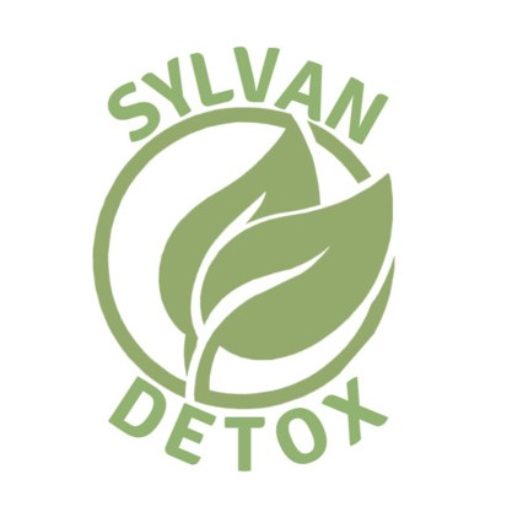Top Rated Drug Detox Program in San Fernando Valley
San Fernando Valley residents choose Sylvan Detox as the leading recovery center for drug detox and rehab programs. Our luxury rehab offers patients the highest levels of care within a comfortable, safe environment. Detoxing from drugs can be a daunting idea for someone preparing to enter into addiction recovery but we strive to provide our patients with a detox center that offers you all of the comforts of home along with leading addiction treatment services that will ensure they remain comfortable, relaxed, and at ease throughout your time with us. Our diverse team of medical professionals including 24/7 onsite nurses, medical doctors, and access to psychiatric evaluation along with our compassionate addiction therapists will be with you every step of the way as you heal from your drug addiction and enter into a new life of addiction recovery. Healing from your addiction to drugs is possible and with the support of our evidence-based therapy methods, you will be able to safely and effectively overcome your addiction to drugs with ease.
Table of Contents
- What Is Detox Life?
- What to Expect During Drug Detox?
- Symptoms of Detox by Drug Type
- Benzos
- Opioids (Heroin)
- Stimulants (Cocaine, Meth, etc)
- Bath Salts
- Marijuana
- DXM/Cough Syrup
- Ecstacy/Molly/MDMA
- Fentanyl
- Hallucinogens
- Oxycodone
- Prescription Drugs
- Acute Detox
- Sub Acute Detox
- Why Choose Sylvan Detox for Drug Detox
What Is Detox Like?
Drug detox is a necessary first step in your recovery journey. It is important that you heal your body from the physical dependency that has developed on drugs before you can begin to explore the underlying emotions and traumas that have contributed to your addictive behavior. Drug detox will allow you to stabilize your physical health in order for you to be able to present in your recovery process of drug rehab in San Fernando Valley.
During drug detox, you will release the harmful toxins and influences of drugs from your body. During this time, your body will be attempting to readjust to functioning without the presence of drugs which can produce side effects known as withdrawal symptoms. Depending on your drug of choice, your withdrawal symptoms can produce significantly unpleasant or dangerous side effects that will need to be treated by specific addiction treatment methods. A drug detox program will allow you to move through your withdrawal symptoms with the ongoing support and supervision of licensed medical professionals that will work to maintain your safety and comfort throughout your detox process. Once you have moved through your drug withdrawal symptoms and begin to resume healthy, normal functioning, you will be ready to embark on your drug rehab program that will assist you in exploring and healing from the root causes of your drug addiction.
What to Expect During Drug Detox?
Before beginning drug detox, it is important that our team gains a full understanding of the severity of your drug addiction. When you arrive you will first meet with our medical team and counselors to complete initial admission paperwork and assessments that will allow our team to capture the scope of your physical and mental health needs. After gaining an understanding of your specific history of drug addiction, our team will be able to create an individualized treatment plan that is centered around your specific needs for healing. While you are in drug detox, you are monitored and frequently checked in with by our nurse and physicians that will provide you with appropriate medical interventions as withdrawal symptoms occur including a medication-assisted treatment program. As your physical withdrawal symptoms become stabilized, our team will begin to address any psychological symptoms through our comprehensive evidence-based therapy methods.
Symptoms of Detox by Drug Type
Every drug has its own individual effects and when you quit that drug there will be specific withdrawal symptoms that will occur. Withdrawal symptoms will range in severity depending on your individual history with substance abuse and the severity of your use. For each substance and its withdrawal symptoms, specific treatments and medical support will help you safely overcome any negative side effects safely and comfortably.
Benzos
Benzodiazepines are prescription medication that is typically given to individuals that are experiencing side effects of an anxiety disorder, or panic disorder, or can be used to treat symptoms of seizures. Benzos can be highly addictive when abused and should be stopped by a slow tapering-off process to avoid any harmful side effects or withdrawal symptoms. Often if a person stops their benzo abuse, it can exacerbate the symptoms of their original co-occurring disorder. Withdrawal symptoms from benzos may include some or all of the following:
- Anxiety
- Irritability
- Hallucinations
- Aggression
- Hostility or anger
- Erratic mood swings
- Panic attacks
- Hand or body tremors
- Seizures
Opioids (Heroin)
Opioid or heroin addiction creates a strong physical dependency within the substance abuser. When you attempt to quit your use of opioids, it can cause withdrawal symptoms that can be severe and, sometimes, painful depending on your specific history with opioid abuse. Due to the possible severe withdrawal symptoms that can occur from heroin, your detox and withdrawal symptoms should be monitored and treated by healthcare professionals that will be able to ensure your physical and mental health is being taken care of. Opioid withdrawal symptoms can include some or all of the following:
- Abdominal pains
- Intense stomach cramping
- Challenges or changes with gastrointestinal functioning
- Severe and uncomfortable muscle or body aches
- Hand and body tremors
- Bone and joint pains
- Increased feelings or sensitivity to pain
- Flu-like symptoms
Stimulants (Cocaine, Meth, etc)
Stimulant drugs such as cocaine or meth will often have a more severe impact on your psychological health rather than an impact on physical health functioning. While there are some physical withdrawal symptoms that can occur, most withdrawal symptoms will impact your mental health and behavioral health. Stimulant drug abuse will need a comprehensive treatment plan that will target healing from your addiction within your physical and psychological health. Stimulants may produce the following withdrawal symptoms and side effects:
- Severe depression
- Anxiety
- Panic attacks
- Insomnia or changes in regular sleeping patterns
- Paranoia or paranoid delusions
- Hallucinations
- Suicidal ideations or behaviors
Bath Salts
Bath salts have grown in popularity in the illegal drug market and the implications of this substance are still being discovered. From what has been observed from bath salts abuse, this substance can have severe impacts on a person’s psychological and physical health. Bath salt abusers may experience the following withdrawal symptoms when they attempt to quit their use of this substance:
- Anxiety
- Depression
- Panic attacks
- Self-harming behaviors including self-mutilation
- Suicidal thoughts, ideations, and behaviors
- Hyperthermia
- Catatonia (inability to respond or move normally)
- Seizures
Marijuana
Marijuana is one of the most widely used substances among Americans. While many believe that marijuana is a safe drug that produces little to no dependency, there is potential that individuals may become addicted to this substance and experience withdrawal symptoms when they attempt to end their usage of marijuana. After prolonged use of marijuana, individuals may experience some of the following withdrawal symptoms:
- Anxiety
- Depression
- Intense mood swings
- Stomach pains
- Abdominal cramping
- Hand or body tremors
- Increased body temperature
Dxm/Cough Syrup
Abusing cough syrup or DXM can alter a person’s overall health and well-being leading to an increased risk of experiencing significant health concerns or side effects. When you attempt to quit your use of DXM, there is the potential of experiencing a range of withdrawal symptoms that depend on the severity of your use such as:
- Insomnia or changes in sleep patterns
- Anxiety
- Depression
- Panic attacks
- Onset of mood swings
- Diarrhea
- Hallucinations
Ecstacy/Molly/MDMA
MDMA and ecstasy are drugs that impact a person’s overall mood and mental health. While using MDMA or ecstasy, it is common for the substance abuser to experience extreme feelings of euphoria, overexcitement, intense stimulation, and happiness. However, once you begin to come down from this high, there are serious mental health and physical health side effects and withdrawal symptoms that can occur such as:
- Paranoia
- Loss of memory
- Delirium
- Confusion
- Delusions about interactions and observances around you
- Extreme exhaustion
- Fatigue
- Erratic mood changes ranging from extreme highs to severe lows
- Inability to concentrate or a “brain fog”
Fentanyl
Fentanyl is a highly addictive opioid that is 100 times stronger than morphine. This opioid produces similar effects as other opioids and is highly addictive when abused. When you quit your use of fentanyl, there is an increased risk that you will experience a range of withdrawal symptoms that can become severe and dangerous if they are not treated by appropriate medical professionals. Fentanyl withdrawal symptoms that can occur are:
- Stomach aches
- Severe abdominal cramping
- Nausea
- Vomiting
- Diarrhea
- Severe aches and pains in within bones
- Muscle and joint pains and severe discomfort
- Muscle weakness and, in some cases, deterioration of the muscles
- Irregular respiratory functioning
Hallucinogens
Engaging in hallucinogen abuse will significantly alter your normal thought process and mind state. When you begin to come down from this high, there is an increased risk of experiencing severe side effects from your drug abuse. There are some cases where some people won’t experience withdrawal symptoms, however, if you do experience withdrawal symptoms they may include the following symptoms:
- Flashbacks
- Experiencing disturbing memories
- Excessive sweating
- Elevated heart rate
- Muscle stiffness
- Severe muscle pains
- Seizures
- Convulsions
Oxycodone
Oxycodone is a prescription opioid that is used to treat ongoing pain disorders or severe pain. This prescription drug will produce similar effects to illicit opioids. Attempting to quit your oxycodone use will cause your body to experience withdrawal symptoms as it attempts to regain normal functioning without the presence of oxycodone in your body. Withdrawal symptoms from oxycodone can include some or all of the following:
- Irregular heart rate
- Diarrhea
- Sweating
- Severe headaches
- Inability to concentrate
- Muscle and body pains
Prescription Drugs
Prescription drugs come in many forms and are provided to patients for various reasons to treat a number of physical, mental, or behavioral health conditions. While many begin their use of prescription drugs as a way to treat any ongoing disorder, when these substances are abused there is potential for them to become highly addictive. When a person attempts to quit using prescription drugs, there can be a range of withdrawal symptoms that range from mild to severe which can include the following:
- Depression
- Anxiety
- Panic attacks
- Insomnia or changes in sleeping patterns
- Inability to regulate emotions
- Mood swings
- Hand or body tremors
- Seizures
Acute Detox
An acute detox program is intended for patients that are currently living with a severe addiction to drugs or alcohol. Individuals that have been abusing drugs and alcohol for a prolonged period of time become physically and psychologically dependent on these substances to have normal daily functioning. When you attempt to quit your use of substances, your body and mind will attempt to restore themselves to regular, sober functioning which can often produce significant or severe withdrawal symptoms that have the potential of becoming dangerous and potentially life-threatening. An acute detox program will allow patients to overcome their addiction within a medical facility that will treat and monitor withdrawal symptoms as they occur. Patients are provided with medical treatments until their symptoms have stabilized or reduced to a mild level allowing them to remain physically and psychologically safe and well throughout their detox process.
Sub Acute Detox
Not all patients will experience severe withdrawal symptoms that will need to be treated and monitored by healthcare professionals. There are some individuals that will experience mild or moderate withdrawal symptoms that will not pose a risk to your overall safety, health, and well-being. In these circumstances, patients will be invited to participate in a sub-acute detox where they can attend the treatment center in an outpatient drug rehab in San Fernando Valley to check in with healthcare staff and counselors who will check in on their progress in detox. After determining your physical and mental health are remaining stable, you are able to continue to return home each evening.
Why Choose Sylvan Detox for Drug Detox
Sylvan Detox offers San Fernando Valley residents a comprehensive drug detox program that ensures their safety and well-being throughout their time with us. Patients are able to heal from the physical addiction to drugs within our luxury rehab setting that offers you top-tier amenities, full medical care and assessments, and a private, comfortable environment to put your drug addiction in your past. Healing from drug addiction is possible and our team is ready to help you take the first steps toward a new life clean and sober of all substances. Call us to hear more about our drug detox programs and start your road to recovery today.












